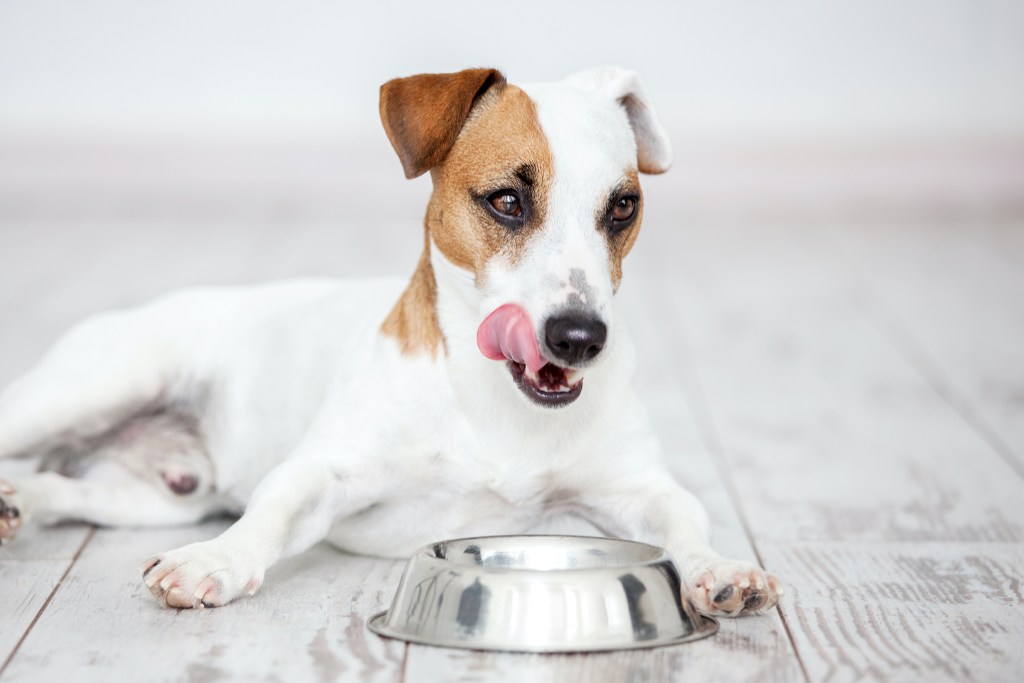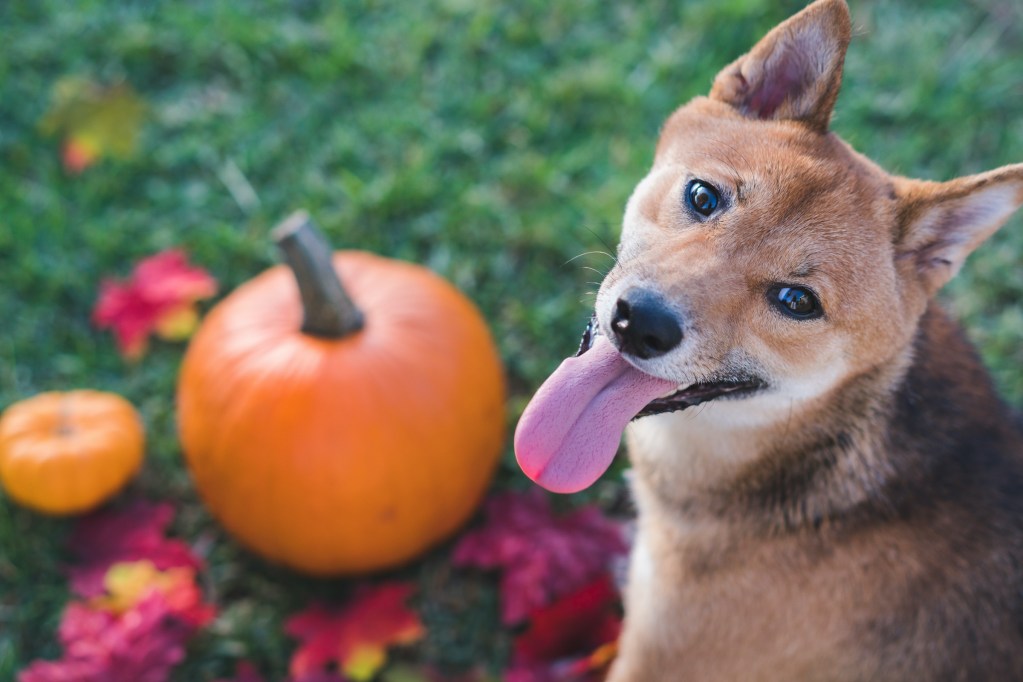Unlike cats, which are obligate carnivores, man’s best friend is actually an omnivore. Capable of eating fruit, meat, grains, and vegetables, dogs can enjoy many of the same foods we do. That being said, there are some foods that should be limited, such as bread, which offers no nutritional value, and spices like nutmeg, which can cause stomach upset if ingested.
While we’re on the subject of spices, you might be wondering, “Can dogs have cinnamon?” After all, some of the foods we share with our pups contain small amounts of cinnamon, especially during the fall and winter seasons. We’ll tell you what you need to know about whether your pup can enjoy this warm, delicious spice. After all, it’s better to be safe than sorry!
Can dogs have cinnamon?

We have some good news, and we have some bad news. While cinnamon isn’t toxic to your dog, that doesn’t mean you should allow him to eat much of it. Both cinnamon and cinnamon oil have been known to cause irritation and sensitivity to the skin and digestive tract in humans and pets alike. The American Kennel Club (AKC) cautions, “Chewing on cinnamon sticks and consuming ground cinnamon or essential oil can cause irritation in your dog’s mouth, and inhaling cinnamon powder can cause your dog to cough, choke, and have difficulty breathing.” Anyone who attempted the viral cinnamon challenge back in the 2010s knows what we mean!
Yikes! The good news is that it takes ingesting more than a teaspoon of powdered cinnamon to cause any harm to most pets, though that varies depending on your dog’s breed and size. More potent cinnamon oil can cause sensitivity and irritation in smaller doses. However, you should even take precautions when feeding your dog cinnamon. Cinnamon toxicity is relatively rare, but we recommend taking your pup to the vet immediately if he experiences diarrhea, vomiting, changes in heart rate, or symptoms of drastically low blood sugar.
What happens if a dog eats cinnamon?

If your dog ingests a small amount of cinnamon, he’s probably going to be perfectly fine. In larger doses, however, cinnamon consumption can cause ulcers in the mouth or stomach, vomiting, and diarrhea. Alarmingly, large quantities of cinnamon might cause your dog’s blood sugar to drop dangerously, and it might even cause liver disease.
However, in small doses, cinnamon offers several health benefits. If your pup struggles with arthritis, adding a small pinch of a natural anti-inflammatory like cinnamon to his diet might help manage the symptoms. It’s a fine line between just enough and too much, though, so always err on the side of caution. Even better, ask your dog’s vet before springing cinnamon on your pup’s food.
Feeding your pup a little cinnamon each day – around half a teaspoon – has been shown to help diabetic dogs keep their blood sugar in check. (It’s important to note that cinnamon alone is no replacement for medication, but anything that can help reduce insulin resistance and manage blood glucose levels is a welcome addition to any healthy lifestyle.) Cinnamon is also rich in antioxidants, which help prevent cell damage and give brain health a boost. Lastly, the Journal of Animal and Veterinary Advances published a study finding that dogs that ate small quantities of cinnamon had much lower heart rates and systolic blood pressure than the test group that did not receive cinnamon.
Can dogs have cinnamon applesauce?

We already know that dogs can have apples as long as the core has been removed, but have you ever wondered if your dog can have cinnamon applesauce? The answer is that it depends on the applesauce. Freshly made applesauce consists of one ingredient: puréed apples. However, store-bought applesauce usually includes preservatives to prolong the product’s shelf life. Even worse, some mass-produced brands of applesauce contain added sugars or potentially dangerous artificial sweeteners. Remember, xylitol, which is also marketed as birch sugar, can be lethal to dogs, even in small amounts.
If your dog loves apples, try making your own applesauce with just a dash of cinnamon instead. That way, your dog gets the health benefits of apples and cinnamon, and you know exactly what ingredients you’re feeding your beloved fur baby. Purée a few apples, mix in half a teaspoon of cinnamon, and let your dog enjoy a tasty, healthy treat. (As a bonus, you’ll also save money making the applesauce yourself.)
Can dogs have Cinnamon Toast Crunch?

Let’s be honest: Most of the healthier cereals on the market taste like cardboard. If you’re still a fan of one of our childhood favorites, we have some good news. Unless your pup is diabetic, sharing a few pieces of your Cinnamon Toast Crunch won’t hurt your pup. Nevertheless, keep in mind that prepackaged cereal is, well, packed with added sugars and preservatives, so it’s not the healthiest snack for your pooch.
We understand the desire to share one of your favorite breakfast foods with your pup, but there are better alternatives. This recipe from Three Olives Branch uses simple, wholesome ingredients like oats, apples, honey, ground cinnamon, and flaxseed to create delicious, sugar-free, preservative-free treats for your pooch.
Can dogs have pumpkin spice?

The autumnal season is one of the most popular times of the year to enjoy cinnamon, whether it’s on your oatmeal, in your coffee, or in Grandma’s famous pumpkin pie. In fact, cinnamon is one of the spices used when making a “pumpkin spice” blend, so it may not be pure cinnamon you’re sharing with your pooch. Because of this, you should not share anything containing pumpkin spice with your dog.
Every company’s pumpkin spice blend varies, but many contain nutmeg, which is toxic to dogs, or other spices that can cause gastrointestinal upset. If you want to make an autumnal treat for your dog, stick to a sprinkle of cinnamon instead!
Final thoughts on cinnamon and dogs

While certain foods are definitely on the forbidden list for a reason, your pooch can enjoy some of your favorites. When it comes to sharing cinnamon-based snacks with your pup, try making your own instead of relying on preservative-laden, ready-made dog treats from the store. Not only will you save a little money making your own, but you’ll be able to control exactly what goes into your dog’s treats.




